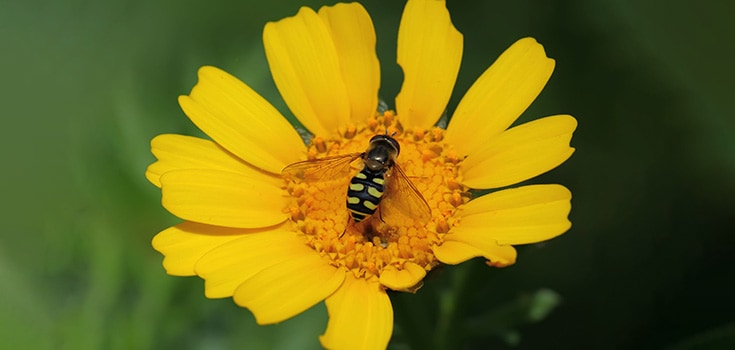Could Getting Rid of Wasps do More Harm than Good?

Like bees, wasps play an important role in nature. The dwindling bee population has created quite the buzz in mainstream media, but the plight of wasps has gone ignored for the most part. Buglife—the only conservationist organization in Europe protecting all invertebrates—recently launched a wasp appreciation drive and pled with supporters to waft, don’t swat. Who thought that getting rid of wasps may do more harm than good?
Buglife’s outreach officer, Dale Harrison, says that despite their nasty reputation among picnickers, campers, and barbecue enthusiasts, wasps generally won’t go out of their way to harm anyone. They will sting if riled, but this isn’t a great problem until the tail end of summer. By then, they have a large number of other wasps to provide for and are consequently on the hunt for more food. Open soda cans and drips of watermelon slices are among their favorites. Wasps also get “drunk” on overripe or rotten fruit, and it is perhaps this state that drives them to greater aggression.
Consequences of Getting Rid of Wasps and Bees
But if wasps are such hot-headed nuisances, what could they possibly be contributing to the environment? According to Nick Baker, Buglife’s vice president, “They are great recyclers, pollinators, pest control agents, and above all they carry out their services in a vibrant buzz of color and energy.”
Rather than killing and getting rid of wasps so we can enjoy the great outdoors, we must preserve them so we can continue to enjoy the great outdoors. The worst approach we could take is one in the vein of the USDA’s when it ignored warnings of the declining bee population and continued endorsing pesticide use.
Preventing and Treating Wasp Stings
“Wasps can be incredibly beautiful and they add color, life, and drama to our gardens, parks, and countryside—we really should appreciate them more.”
When they create a little too much drama in your life—stinging the dog, your date, or your kids and forever ruining picnics for them—here are some home remedies for bee stings that may also help to quickly alleviate a sting from a wasp.
To avoid the nasty end of a wasp in the first place, wear light-colored clothing, avoid sugary drinks and food outdoors, and calmly waft—don’t swat!—them away.
Additional Sources:

Interesting, brief article on wasps versus bees. However, the accompanying photo is neither: it is a FLY.